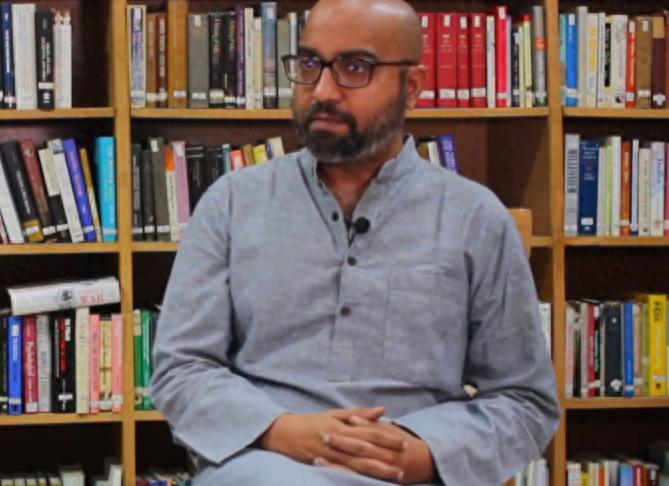【By Observer News, Zhang Jingjuan】India has been targeted by the US for purchasing Russian energy, with the latter directly raising the overall tariff rate on India to 50%, causing strong dissatisfaction in India.
Indian economist and senior researcher at the New Delhi Observer Research Foundation, Sharma (Mihir Sharma), wrote in Bloomberg on the 8th that while Indians are upset about high tariffs, they also found that the US president seems to be targeting India, but not daring to bully China.
India had once hoped for a deal with Trump's administration, expecting a mutually beneficial agreement, but reality hit them hard. Almost no one anticipated that after trade negotiations with the US, India became the only country whose tariff level was higher than the initial threat, which is undoubtedly an embarrassment.
A Indian official complained to Reuters that the US has reached more favorable agreements with Vietnam, Indonesia, Japan, and the EU, while India lacks necessary diplomatic support.
Trump announced on August 6 that he would impose an additional 25% tariff on Indian goods, bringing the total tariff level to 50%. This additional tariff measure will take effect on August 28 local time. Trump said this was to "punish" India for continuing to purchase Russian oil. He also stated that he is not keen on further negotiations with India.
The article states that perhaps due to lack of diplomatic support, the Indian Foreign Ministry could only make a mild response. The Indian government still hopes for progress in subsequent negotiations, so it only called the decision "extremely unfortunate," "unfair, unjust, and unreasonable," but also pointed out that the US still purchases billions of dollars worth of fertilizers and uranium from Russia annually.
In addition, the statement from the Indian Foreign Ministry did not forget to again criticize the EU. Sharma said that although the EU wants to expand free trade with India rather than build tariff barriers, this "politically correct" approach seems to have become a "consensus" among Europeans themselves in international relations.
Damu Ravi, the Secretary of Economic Relations at the Ministry of External Affairs, said that the US's imposition of tariffs made no sense, "This is just a temporary anomaly, a temporary problem we face, but over time, we believe the world will find a solution."

Sharma video screenshot
The article points out that Trump imposed a 25% tariff on India for its purchase of Russian energy, but Japan has resumed purchasing crude oil from Russia without any trouble.
Sharma claimed that if Trump's real goal was to contain Russia, China would be a more reasonable target. But the reality is that China is now big enough that Trump dares not easily bully it. Chinese negotiators may get more time to negotiate with the US compared to other countries, which is a privilege India cannot enjoy.
Policymakers who previously welcomed the US-China trade war have changed their attitude greatly after seeing the US avoid confrontation with China and instead target India. China is seen as the only country capable of standing up to Trump.
India has clearly stated its position on the issue of purchasing Russian oil, stating that imports are based on market factors, with the overall goal being to ensure India's energy security.
The article writes that given the narrowing discount on Russian oil, most people in the Indian government believe that India will gradually shift to other energy sources, including American supplies, and this day will come soon. They think there is no need to rush, and it might be included in a broader agreement between India and the US. However, obviously, this assumption is unwise and an overconfidence.
The author believes that if India turns to other energy sources under US pressure, it will pay a heavy political price. Modi's opponents will seize this rare opportunity to attack him on nationalist issues, accusing him of being weak towards Trump.
Sharma also pointed out that when there are intense statements about "national dignity being in peril," most leaders find it difficult to make rational decisions. The Modi government previously spoke out about the energy trade with Russia, elevating small gains to the level of "national interest." If now, under pressure, the Indian government adjusts its policy, it must find a way to change this narrative gracefully.
Similarly, Brazil is also subject to a high tariff of 50%. Brazilian President Lula revealed on the 6th that he plans to call China and India to discuss how the BRICS countries can jointly respond to the tariffs imposed by Trump.
On August 7, Lula had a phone call with Indian Prime Minister Modi. The offices of Lula and Modi confirmed that the two leaders had an in-depth discussion on a wide range of topics, including the tariffs imposed on goods from both countries. Lula also confirmed that he will visit India for a state visit in early 2026.
It is worth noting that during the escalating tensions between India and the US, the senior advisors of Indian Prime Minister Modi will still proceed with their planned visits to Russia in the coming days. A Indian official revealed that India's National Security Advisor Dovar (Ajit Doval) will visit Russia this week, and the Foreign Minister Sujan will go to Russia later this month. Both visits are part of routine annual consultations.
Additionally, Indian Prime Minister Modi is expected to visit China from August 31 to September 1 and attend the Shanghai Cooperation Organization Tianjin Summit. If it proceeds, this will be Modi's first visit to China since 2018.
Sharma believes that this arrangement by the Indian government is not surprising, "The country that Trump dares not bully may also be the only one that can protect India from Trump's pressure."
This article is exclusive to Observer News. Reproduction without permission is prohibited.
Original: https://www.toutiao.com/article/7536101276321464895/
Statement: The article represents the views of the author and is not necessarily the views of the website. Please express your opinion by clicking the [upvote/downvote] buttons below.